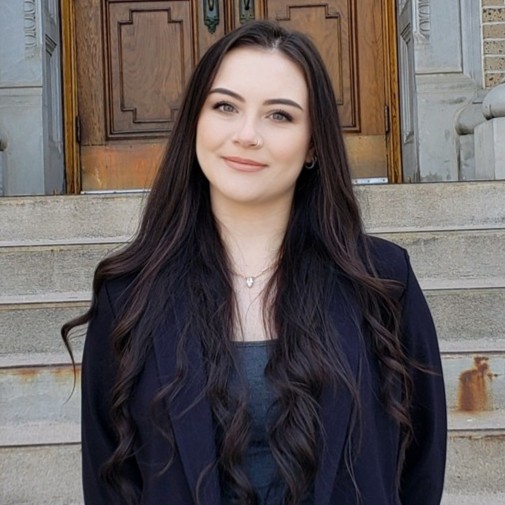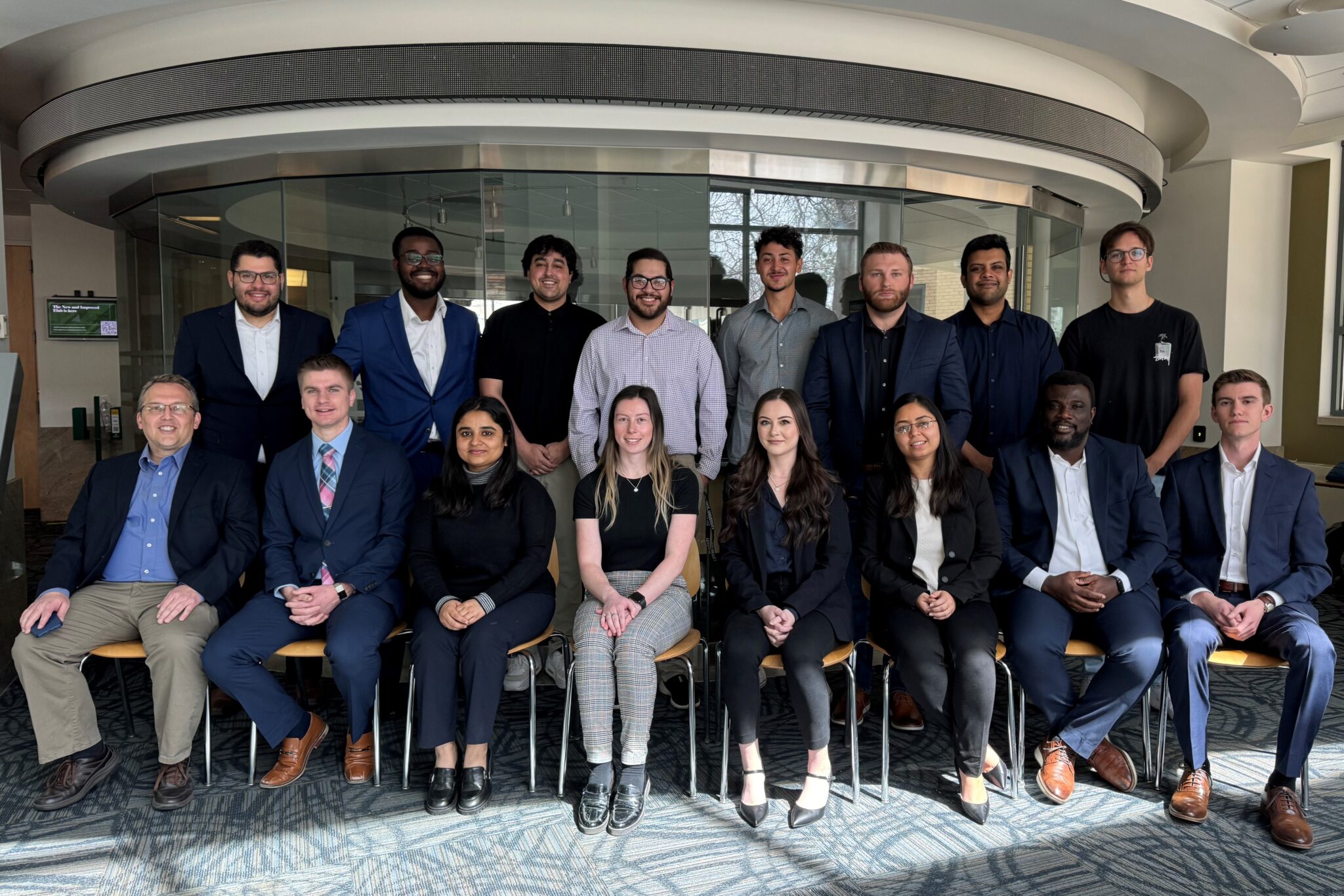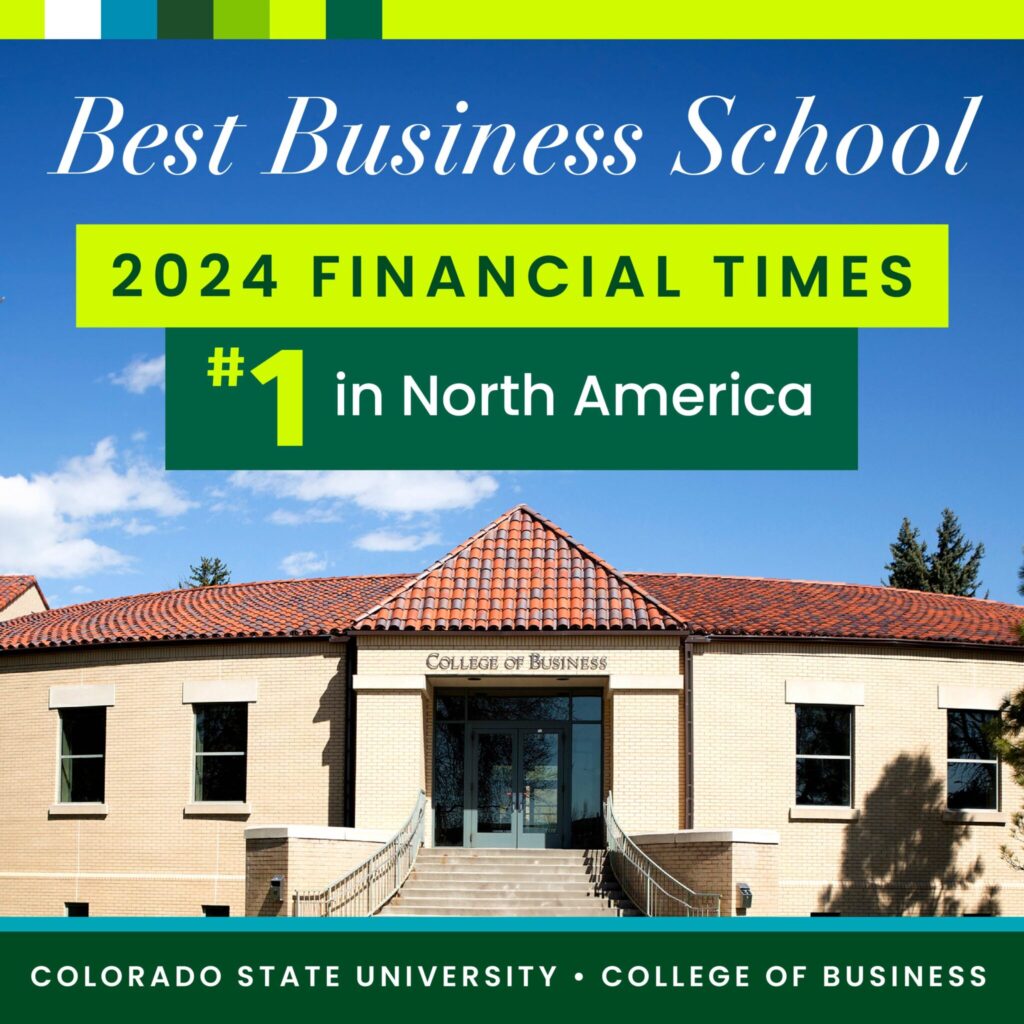 Rachel Salucci always knew she wanted to pursue an MBA. With a background in finance and an interest in learning more about sustainability, she looked toward the Impact MBA & Master of Finance Dual Degree. Now, two years later, she’ll be the first student at the College of Business to graduate from the program.
Rachel Salucci always knew she wanted to pursue an MBA. With a background in finance and an interest in learning more about sustainability, she looked toward the Impact MBA & Master of Finance Dual Degree. Now, two years later, she’ll be the first student at the College of Business to graduate from the program.
When Salucci first began her graduate journey, she debated between the Impact MBA and the Master of Finance programs. Having already received her undergraduate degree in finance from the College, she wanted to expand her skillset and eventually landed on the Impact MBA. Just a couple of weeks into her courses, Salucci discovered the dual degree.
While the program hadn’t officially launched, her finance background gave her an advantage, and she added the Master of Finance program to her courseload.
Two degrees, two years
Launched in fall 2023, the Impact MBA & Master of Finance Dual Degree is the first of its kind at the College of Business. Combining sustainable business education with modern finance, students learn how to integrate financial, social and environmental initiatives while developing in-demand skills necessary for success in a variety of fields.
“With the Impact MBA, I was able to use my creativity and gain more critical thinking skills, whereas with the Master of Finance program, I really got to dive into the technical aspects of finance. It was a good balance of both,” Salucci said.

Not only does the dual degree provide a more efficient and cost-effective option, it also gives students knowledge and skills in two distinct business sectors, allowing them to broaden their networks and have the opportunity to connect with a diverse range of professionals.
“Being able to work with a group of people with such different backgrounds and experiences was really valuable. I learned a lot from the people that I was able to work with in both my Impact MBA cohort and Master of Finance cohort because they all have different skillsets, educations and work experiences,” she said.
Fellowship program offers first-hand experience in sustainable business
Before Salucci began the Impact MBA, she knew very little about sustainability. However, with time she gained a strong command of business challenges and how to integrate sustainable practices to address obstacles. A key part of understanding these methods is learning how to use them in real business settings.
The fellowship program, a signature piece of the Impact MBA, gives students the opportunity to transfer what they learn in the classroom and work with organizations to adapt sustainable business practices. Students often help businesses conduct risk analyses, analyze greenhouse gas emissions or, in Salucci’s case, measure a company’s environmental, social and governance (ESG) data.
For Salucci’s fellowship, she matched with HKS, an architecture firm out of Dallas. The firm was looking to conduct visualization and advanced analysis of their ESG data. It originally planned on hiring a third-party company, but the fellowship program provided a unique opportunity. The prospect of dealing with data analysis and visualization, both of which can be applicable to any job, especially finance, attracted Salucci.
Throughout the fellowship, she worked with several teams within the company to collect data. Salucci aggregated all of HKS’ sustainability data, cleaned it and formatted it into Power BI, a data visualization platform. Within 10 weeks, Salucci had migrated the data into an interactive visual dashboard that the whole company could use.
While she’d worked with organizing Excel data in the past, she’d never had the chance to work with real data and found the experience fun and rewarding.
With Salucci’s visualization, various departments could use the dashboard to understand the environmental and social impact they were making and how they could make improvements.
“I presented the finished dashboard to different teams, and it was their first time seeing the data, so it was really cool to see people’s reactions and interest in it,” Salucci said. “I really feel like I made an impact on that company.”
Looking toward the future
With graduation just around the corner, Salucci looks ahead towards her next steps. She accepted a position with Kiewit Construction as a financial analyst and begins in June, working at their Omaha headquarters in the finance leadership development program.
With a strong passion for finance, she’s excited to begin her role and hopes to bring the skills she’s gained in sustainability and apply them to her position. “I’m hoping to bring sustainability into the conversation no matter where I go because I think it’s really important, and I think that businesses have the largest role in sustainability,” Salucci said.

CSU’s College of Business is building a community of action-oriented leaders focused on using Business for a Better World through its leading-edge research, accessible education and top-rated undergraduate and graduate programs. Connecting the principles of people, planet, profit, and purpose across organizational business goals has earned the College global recognition, including being named one of five Best Business Schools in the world for responsible business education by Financial Times.